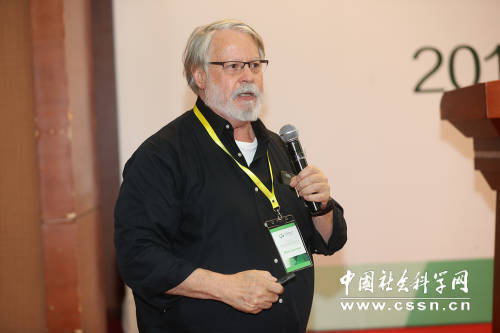Mark Liberman:Speech, Language, and Communication Across the World: Resources, Technology, and Science
http://www.newdu.com 2025/12/18 05:12:26 中国社会科学网 Mark Liberman 参加讨论
 Mark Liberman 【作者简介】 Mark Liberman's PhD is from the Massachusetts Institute of Technology in 1975. From 1975 to 1990, he was a member of technical staff and head of the Linguistics Research Department at A&T Bell Laboratories in Murray Hill. Since 1990, he has been a faculty member at the University of Pennsylvania, where he was the director of the Institute for Research in Cognitive Science from 2001 to 2006. He is now the Christopher H. Browne Distinguished Professor of Linguistics, and also a professor in the Department of Computer and Information Science. He is the founder and director of the Linguistic Data Consortium-- in the 25 years since its founding, LDC has distributed more than 147,000 copies of nearly 3,000 different datasets to more than 4,500 companies, universities, and government research laboratories in 92 countries. Liberman is a fellow of the American Association for the Advancement of Science and of the Linguistic Society of America. In 2010, he received the European Language Resources Association's Antonio Zampolli prize"awarded to individuals whose work lies within the areas of Language Resources and Language Technology Evaluation with acknowledged outstanding contributions". In 2017, he received the IEEE James L. Flanagan Speech and Audio Processing Award, "for pioneering contributions and continued leadership in robust, replicable, and data-driven speech and language science and engineering". Over the years, Liberman's research has covered areas in theoretical phonology; corpus-based phonetics; speech and language technology; the phonology and phonetics of lexical tone and its relationship to intonation; gestural, prosodic, morphological and syntactic ways of marking focus, and their use in discourse; formal models for linguistic annotation; information retrieval and information extraction from text; the organization of spoken communication in the human brain, especially in relation to the evolutionary substrates for speech and language, and to analogous systems in other animals; and agent-based models of language evolution and learning. A focus of his current research is the use of Human Language Technology in clinical diagnosis and monitoring applications, which is one of the themes of the Jelinek Summer Workshop on Speech and Language Technology that he is helping to organize this year at Carnegie Mellon University. (责任编辑:admin) |